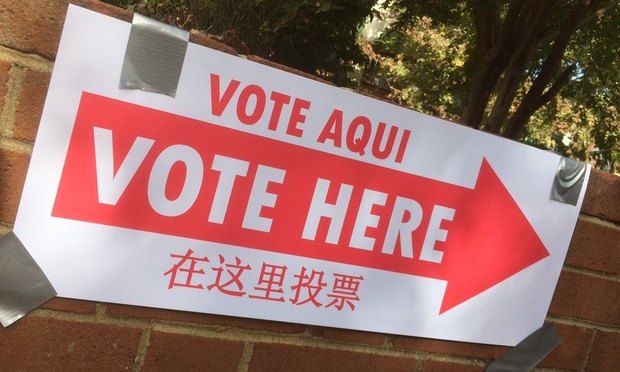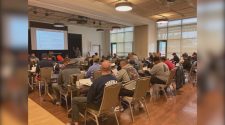Justice Elena Kagan testifies before the House Committee on Appropriations during a Supreme Court Budget hearing, on Thursday, March 7, 2019. Credit: Diego M. Radzinschi / ALM
State laws that fine or remove presidential electors who fail to vote in the electoral college for the candidate whom they pledged to support do not violate the Constitution, the U.S. Supreme Court said Monday.
“Article II and the Twelfth Amendment give states broad power over electors, and give electors themselves no rights,” Justice Elena Kagan wrote for the unanimous court.
Justice Clarence Thomas, joined by Justice Neil Gorsuch, wrote an opinion concurring in the judgment. “In my view, the Constitution is silent on states’ authority to bind electors in voting,” Thomas wrote. “I would resolve this case by simply recognizing that ‘all powers that the Constitution neither delegates to the federal government nor prohibits to the states are controlled by the people of each state.’”
The question of the constitutionality of laws penalizing so-called “faithless electors” was raised in two cases, Chiafalo v. Washington and Colorado Dept. of State v. Baca, which were argued separately during the justices’s May telephonic arguments. Justice Sonia Sotomayor recused from the Colorado case. The justices reversed the Colorado case in a per curiam, unsigned opinion.
In the Washington case, Bret Chiafalo, Levi Guerra and Esther John were Democratic Party electors during the 2016 presidential election. They had pledged to vote for the candidate who won the popular vote– Hillary Clinton, but, instead, they wrote in votes for former secretary of state Colin Powell. They each were fined $1,000.
The Washington Supreme Court upheld the fines. In Colorado, state officials removed Micheal Baca as an elector for the Democratic Party after he tried to write in Republican John Kasich’s name instead of Clinton’s. But the U.S. Court of Appeals for the Tenth Circuit ruled against the state, saying electors, once appointed, are free to vote as they choose.
During the May arguments, held telephonically in the coronavirus era, the justices explored the Constitution’s text, original understanding, and historical and modern practices surrounding electors. They found little evidence that provided a clear answer to the constitutional question but a number of them voiced concern that allowing electors the freedom of choice could create chaos in the electoral college as lobbying campaigns and other efforts could be mounted to persuade electors to change votes.
“If it’s a close call or a tiebreaker,” Justice Brett Kavanaugh said, “we should not facilitate or create chaos.”
Harvard Law School’s Lawrence Lessig, representing the Washington electors, argued that the Constitution gives states the power to appoint electors, but that is where their power ends. Electors’ pledges, he said, were more of a moral obligation than a legal one.
But Washington solicitor general Noah Purcell countered that the states’ power to appoint electors “has always included the power to set conditions on appointment.” He warned that allowing electors to break their pledges “would radically change the way American presidential elections have always worked in our country.”
Justice Ruth Bader Ginsburg pushed back at the notion that chaos would result from allowing electors freedom of choice. She noted that most states require pledges by electors and “faithless” voting has been rare.

















YouTube investigates automatic deletion of comments criticising China Communist party | YouTube